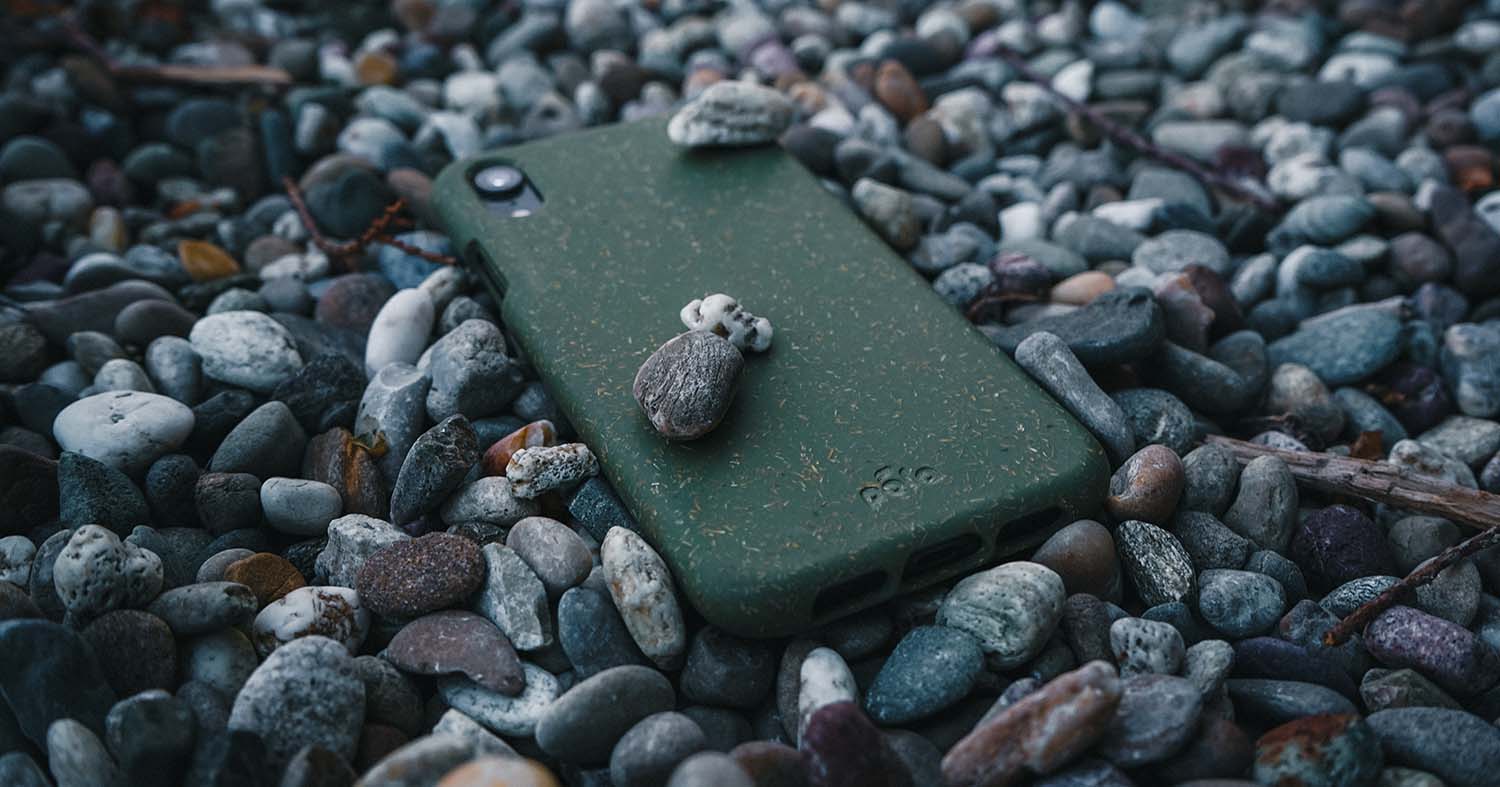The folks at Pela want to create a waste-free future.
That’s a rather lofty goal for a manufacturer of smart phone and AirPods cases, sunglasses, watch bands, and other accessories. But the British Columbia-based brand has a key point of difference up its sleeve: nearly every one of its products is made of a compostable bioplastic engineered from flax fiber that breaks down into carbon, water, and organic biomass. That means you can put your product into the compost when you’re finished with it, and it will break down fully into the soil in less than a year.
Pela was founded in 2011, but its story began in 2008. After the company’s founder, Jeremy Lang, watched his young son dig up plastic on a Hawaiian beach, he spent years experimenting to find an alternative material that could be used to manufacture the products we use every day—and what’s more everyday than our mobile phones? A materials scientist, Lang recognized that phones are expensive and need to be protected, but not by materials that can carry toxins into our homes. That’s why Pela cases are tested to be free of BPA, lead, cadmium, and phthalates. After much research and trial and error, Lang created a material called Flaxstic™, a unique blend of plant-based biopolymer mixed with flax shive, an annually renewable waste by-product of the Canadian oilseed flax harvest. Lang, it should be noted, comes from a family of Canadian prairie farmers.
“If we can make products at a higher standard to keep our family and planet safe, shouldn’t we?” Lang says. “I just want to make sure that I do my best to protect the planet (our home) for my children and their children and the future generations to come!”
Today, Pela says it makes “everyday products without everyday waste” and it wants to keep 10 billion pounds of waste from ever being made. The company is trending in the right direction. A counter on Pelacase.com says that Pela customers have prevented more than 48 million plastic bags from entering the planet’s oceans. They also state that 1.54 billion plastic phone cases are thrown away each year. And making compostable phone cases is not the only way the company is helping alleviate this issue of plastic waste: Pela also runs a program called Pela 360. When you order your plant-based Pela case, you can take the “Tradesies” envelope that comes with it and send back your old Pela case or your conventional plastic case. Your old Pela case will be upcycled into a new Pela product or turned into compost; your old, conventional plastic case will be upcycled or recycled.
The business model seems to be working. The company says that more than two million people have switched to Pela. Online estimates put Pela’s valuation at more than $100 million. In 2019, the company closed a $5 million round of funding from Marcy Venture Partners, the consumer-focused VC fund cofounded by rapper Jay-Z.
The folks buying the products are high on the company, too. It’s a marketer’s dream! The company effectively leverages their more than 50,000 incredibly positive customer reviews by linking to them on the home page of their website. Users call the phone cases “cute,” “stylish,” “convenient,” and “durable.” The sustainability element is also a clear selling point. “I love knowing my phone is protected by a company that cares about the environment,” one customer says. “I’m so glad I replaced my phone case with this eco-friendly one,” says another.
Another unique element to Pela’s sales and marketing strategy is offerings like their “pay what you want” option, which allows online consumers to choose from three prices for a product. When you hover over the lowest price, a description appears explaining that this price allows Pela to cover its essential business operations (product costs, payroll, rent, software, and transaction fees). The middle price covers those costs and allows Pela to invest in product development. Finally, the highest price option covers everything listed in the second-tier price and allows the company to invest in materials research so they can find even more new and innovative ways to reduce waste. Would you pay $10 or $20 extra so your phone case could be buried safely in your backyard instead of sent to a landfill? Judging by the reviews, many would say yes.
On Instagram, @Pelacase has more than a half million followers, and the content is strikingly displayed. The Insta feed features selfies from users holding their Pela-encased mobile phones and other accessories, close-ups of phone cases in scenic locations, and environmentally themed posts. Many of the posts feature user-generated content fed by brand fans. On TikTok, Pela has another 14,000 followers.
Pela’s marketing is, as you might expect, centered around the fact that the company is an environmentally sustainable brand making products that are good for the planet. Their brand tagline is straight to the point—Everyday Products Without Everyday Waste™—and it’s easy to find information on Pela’s footprint, materials, impact, and manufacturing. They boldly claim that they make the only compostable and carbon-neutral phone cases on the market.
Naturally, the Pela blog features a wealth of articles that revolve around your mobile device. All the stories also offer something of value to the reader, covering topics such as how to edit iPhone photos to look professional, how to create and customize your iPhone wall, what productive things you can do on your phone instead of scrolling, and even how to carry your phone while running.
A Certified B Corporation, Pela offsets its entire carbon footprint by purchasing verified carbon credits to be Climate Neutral Certified. The company says that, on average, its products produce 30 percent less carbon emissions, use 34 percent less water, and cause 80 percent less water production than conventional plastic products. In 2022, they also streamlined their transportation routes by adding distribution centers in Canada and Europe that helped their manufacturing facilities shift to renewable power sources and improve the efficiency of their operations.
Beyond making products that are good for the planet, Pela also gives back to organizations that align with its core values. It says it has donated more than $1 million to help nonprofit and for-purpose organizations that aim to leave the planet better than they’ve found it. Recipients include 1% for the Planet, MedShare, Climate Neutral, Surfrider Foundation, Save The Waves, and Support + Feed.
Pela also seems intent on making its BC headquarters a great place to work. The company is remote friendly and offers employees the freedom to take the vacation time they feel they need as well as eight paid volunteer hours so they can contribute to causes they feel passionate about.
What’s next for the compostable phone case and accessory makers? In 2021, the company launched another start-up project called Lomi, a kitchen appliance that can take food scraps and other kinds of compostable waste (including Pela phone cases) and grind them up into dirt overnight. The Indiegogo campaign raised a half million dollars in just a few hours. Composting, it seems, doesn’t just help gardens—it leads to business growth as well!
For its exceptional environmental stewardship and sustainability in both the manufacturing and recycling of its products, awesome charitable efforts, strong connection with its customers, and display of user-generated content, Pela is a Brand We Love.





